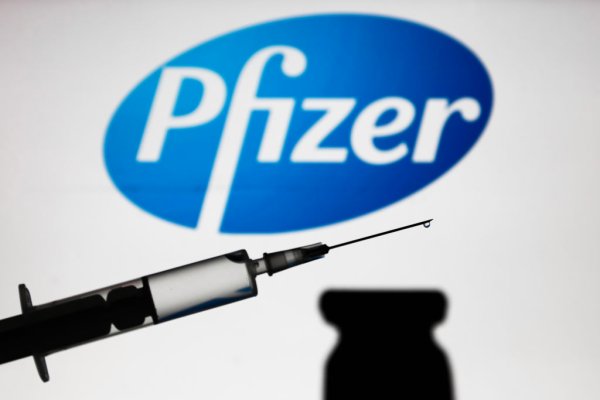Pfizer announced in a tweet on Wednesday that its coronavirus vaccine candidate met all primary efficacy endpoints in a phase 3 clinical trial, and that it planned to file for emergency use authorization “within days.”
The company, along with BioNTech, said the study reached 170 confirmed coronavirus cases, and that the vaccine, BNT162b2, had demonstrated “95% efficacy beginning 28 days after the first dose.” It added that no serious safety concerns had been reported and that 10 severe cases of COVID-19 were observed during the trial, with nine occurring in the placebo group, and one in the vaccinated group.
“Within days, we plan to submit a request to the @US_FDA for an EUA based on the totality of safety and efficacy data collected, as well as manufacturing data relating to the quality and consistency of the vaccine candidate,” Pfizer tweeted. “We also plan to submit the efficacy and safety data from the study for peer-review in a scientific journal once analysis of the data is completed.
Pfizer has previously said it expects to produce up to 50 million doses in 2020, and up to 1.3 billion doses in 2021. It will be offered in a two-dose jab, not unlike other candidates currently in development. The vaccine’s two doses will be separated by a period of 21 days, with the first shot occurring on day zero.
Each shot is comprised of the same formulation, meaning there is no difference between the shots, but the reason there has to be two is because the body responds to each differently. The first dose, Dr. Anuj Mehta, a pulmonary and critical care physician at National Jewish Health, previously explained to Fox News, acts as a primer for the body’s immune system, and the second dose, given three weeks later, will kick it into gear, so to speak.
The vaccine must be stored at minus 70 degrees Celsius or below, which prompted concerns about the logistics of transporting it without breaking the cold chain needed for it to remain effective.
“Pfizer is confident in its vast experience, expertise and existing cold-chain infrastructure to distribute the vaccine around the world,” the company’s Wednesday news release said. “The companies have developed specially designed, temperature-controlled thermal shippers utilizing dry ice to maintain temperature conditions of -70C+10C. They can be used as temporary storage units for 15 days by refilling with dry ice. Each shipper contains a GPS-enabled thermal sensor to track the location and temperature of each vaccine shipment across their pre-set routs leveraging Pfizer’s broad distribution network.”


